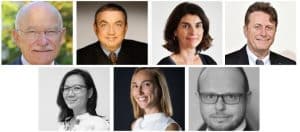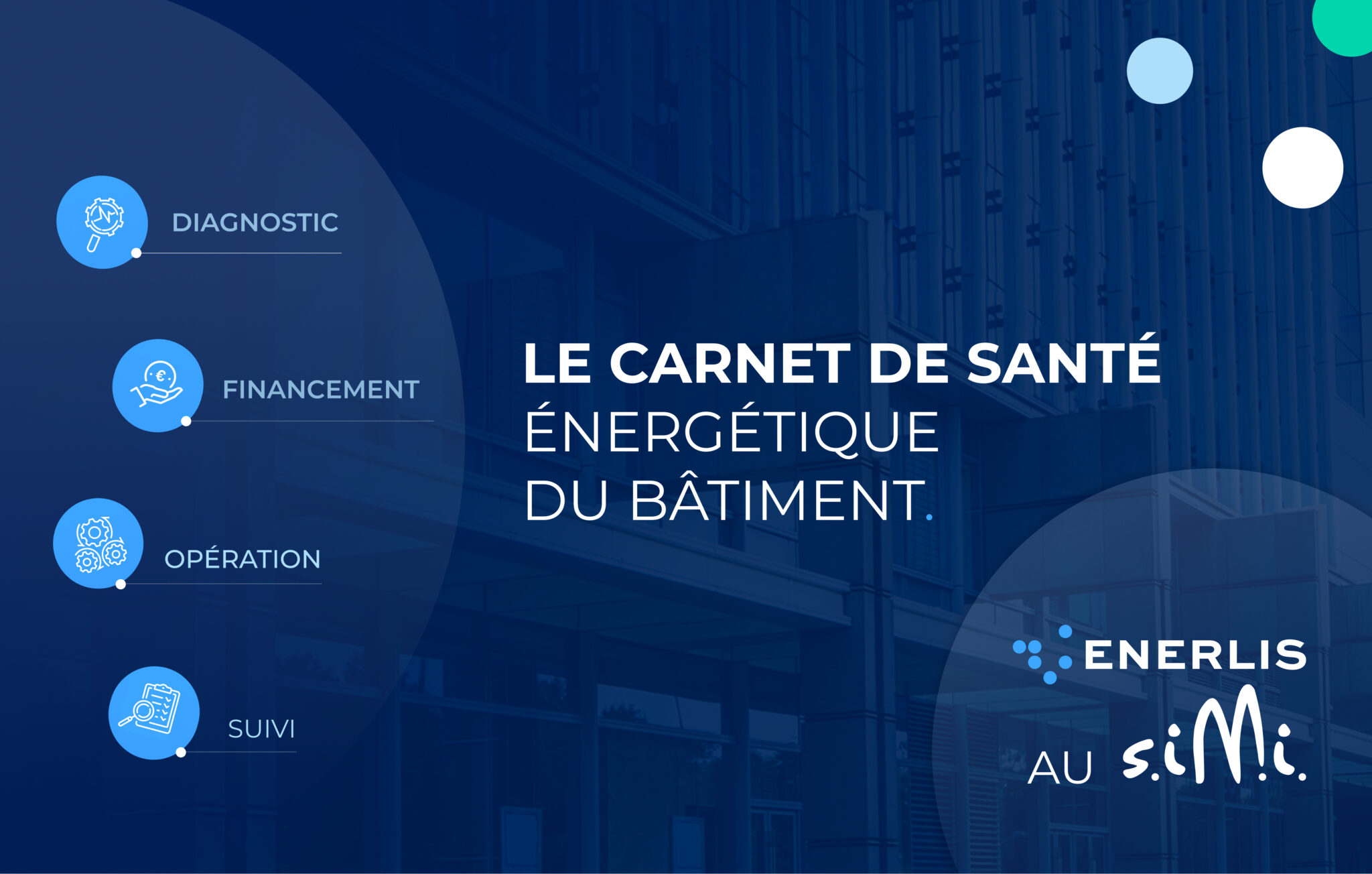« Première université de rentrée d’Enerlis, les bailleurs sociaux en première ligne de la transition énergétique », la journée de webinaires organisée par Enerlis s’est tenue le 22 septembre 2020.
Enerlis a mobilisé son réseau et ses équipes autour d’un événement de réflexion et de débat sur l’actualité du moment à savoir la relance économique et la transition énergétique. Au total, 22 intervenants ont échangé et donné leur point de vue autour de 4 thèmes majeurs : la contractualisation, les financements, les énergies renouvelables et les dernières innovations aux services des bailleurs sociaux.
COMPTE-RENDU ATELIER 2 :
Mobiliser les financements et points sur les dernières Aides & Subventions
Ce webinaire se tient précisément juste au moment où nous commençons à avoir une vision plus claire du plan France relance : 7,5Md€ à la rénovation énergétique des bâtiments dont 500M€ pour les bailleurs sociaux et 2 Mds pour les logements privés via Ma Prime Rénov, qui s’élargit et s’ouvre aux propriétaires bailleurs.
Beaucoup de financements sont à la disposition des bailleurs. Ils en connaissent une grande partie. Enerlis les aide à mobiliser ceux qui nécessite une constitution de dossier plus importante, et fait aussi un point sur les CEE qui est l’outil le plus efficace pour booster la rénovation énergétique des bâtiments.
Patrick Amico, maire adjoint à Marseille, a introduit ce webinaire et explique que les lourdeurs administratives de certaines aides et appels à projets peuvent être décourageantes : « La maîtrise de l’énergie et la lutte contre les passoires thermiques sont indissociables de la politique du logement. Il faut à la fois mobiliser les financements publics en faveur du parc communal et des offices, et embarquer les propriétaires privés, bailleurs ou occupants. À Marseille, nous avons décidé de prendre ce problème à bras le corps. Avec l’ANAH, le Gouvernement veut nous donner des garanties. Mais le montage des dossiers est complexe et les délais d’attente si longs que c’en est décourageant ». Il intime d’ailleurs les bailleurs sociaux de penser plus « global » et évoque les modes d’approche inventés avec Enerlis en conception-production qui ont permis des rénovations plus performantes.
Dominique Gros, ancien maire de Metz et vice-président de Metz Métropole, fait part de son expérience et souhaite appuyer sur le fait que quelques soient les modes de financement, il faut « respecter 2 logiques : privilégier l’économie circulaire dans la production et l’économie d’énergie dans la consommation. Les réseaux de chaleur doivent être développés en France. Il n’y en a pas assez » pour atteindre la neutralité carbone qui dicte nos actions. Il attire aussi l’attention sur la nécessité de former les élus.
Michel Derdevet, en sa qualité de président de Confrontations Europe, vice-président de la Maison de l’Europe de Paris et ancien membre du directoire d’Enedis, rappelle que « Nous sommes dans un paradoxe. Les bâtiments représentant 40 % de la consommation d’énergies et 36 % des émissions de CO2. Nous faisons un réel constat de vétusté en Europe, avec des millions de précaires énergétiques. Et pourtant, nous n’arrivons pas à rendre ce dossier populaire. En France, on empile les couches et les dispositifs, avec cette impression au final d’être dans un débat d’experts. Il faut toucher le grand public, mieux communiquer et rationaliser les aides. Il y a besoin d’un vrai portage politique ».
A l’instar de Patricia Ho Hune, Experte en recherche de financements publics et subventions chez Enerlis, et de Carine Puyol, responsable de missions, aux affaires Européenne des USH, Michel Derdevet incite tous les acteurs de cette transition de miser sur les fonds européens, financements et subventions du plan de relance européen qui représentent 1 800 Md€ à destination des pays, régions, territoires, bailleurs sociaux, filières professionnelles.
Patricia Ho Hune et Carine Puyol font ensemble le panorama des différents dispositifs de ce plan de relance et du Green Deal Européen :
- les actions du Feder,
- le Fonds pour une Transition Juste (JTF),
- HorizonEurope 2021,
- RéactEU 2021-2023, Politique de cohésion 2021-2027,
- InvestEU,
- le RRF : Facilité pour la Reprise et la Résilience,
- Le programme H2020,
- Le programme européen LIFE
Après avoir parlé des fonds européens, de la banque des territoires et des dispositifs existants, Juliette Sens, directrice des opérations chez Loris.enr, fait le point sur le dispositif de financements concrets et immédiats que sont les CEE.
Elle évoque les attentes pour la prochaine période, avec des bonifications qui pourraient être x3 ou x4, si le gouvernement suit les préconisations de la convention citoyenne pour le climat, et le chemin vers la dématérialisation des dossiers.
Juliette rappelle que ce sont les dispositifs coups de pouce qui sont mis en place par le gouvernement pour accélérer les rénovations énergétiques. Ils vont être toujours plus élargis, en terme de secteurs visés ou d’opérations. Il peut être difficile de s’y retrouver, d’où l’intérêt de s’adresser à un acteur spécialisé comme Loris.Enr, signataire de toutes les chartes coup de pouce en vigueur.
Pour finir Grégory Berkovicz rebondit sur toutes les interventions en synthétisant comme suit :
- Pour lui, il y a plus un problème de subventionnement que de financements.
- Pour faire de l’efficacité énergétique, il faut trouver un modèle économique viable.
- Il faut investir et la rentabilité est souvent trouvée sur des longues durées et sur une valorisation patrimoniale.
Il finit par un focus qui rappelle les sujets évoqués au précédent atelier : le Contrat de Performance Energétique, qui est un outils à son sens de la globalisation, qui peut faire appel à tous les financements évoqués, et dans lequel il rappelle qu’il serait important de prévoir une meilleure sensibilisation des utilisateurs.
Avec près de 300 participants, le webinar du mardi 22 septembre 2020 aura été un véritable succès de par son utilité, grâce à la qualité des intervenants et des échanges avec l’ensemble des élus, responsables et experts mobilisés.
Encore un grand merci à eux pour leurs interventions.
Articles similaires

COMMUNIQUÉ DE PRESSE | Partenariat UFT x Enerlis
Nous sommes fiers d’annoncer notre partenariat majeur avec l’Union Foot de Touraine pour la saison 2025-2026. À travers cet engagement, nous ...
Voir la suite



